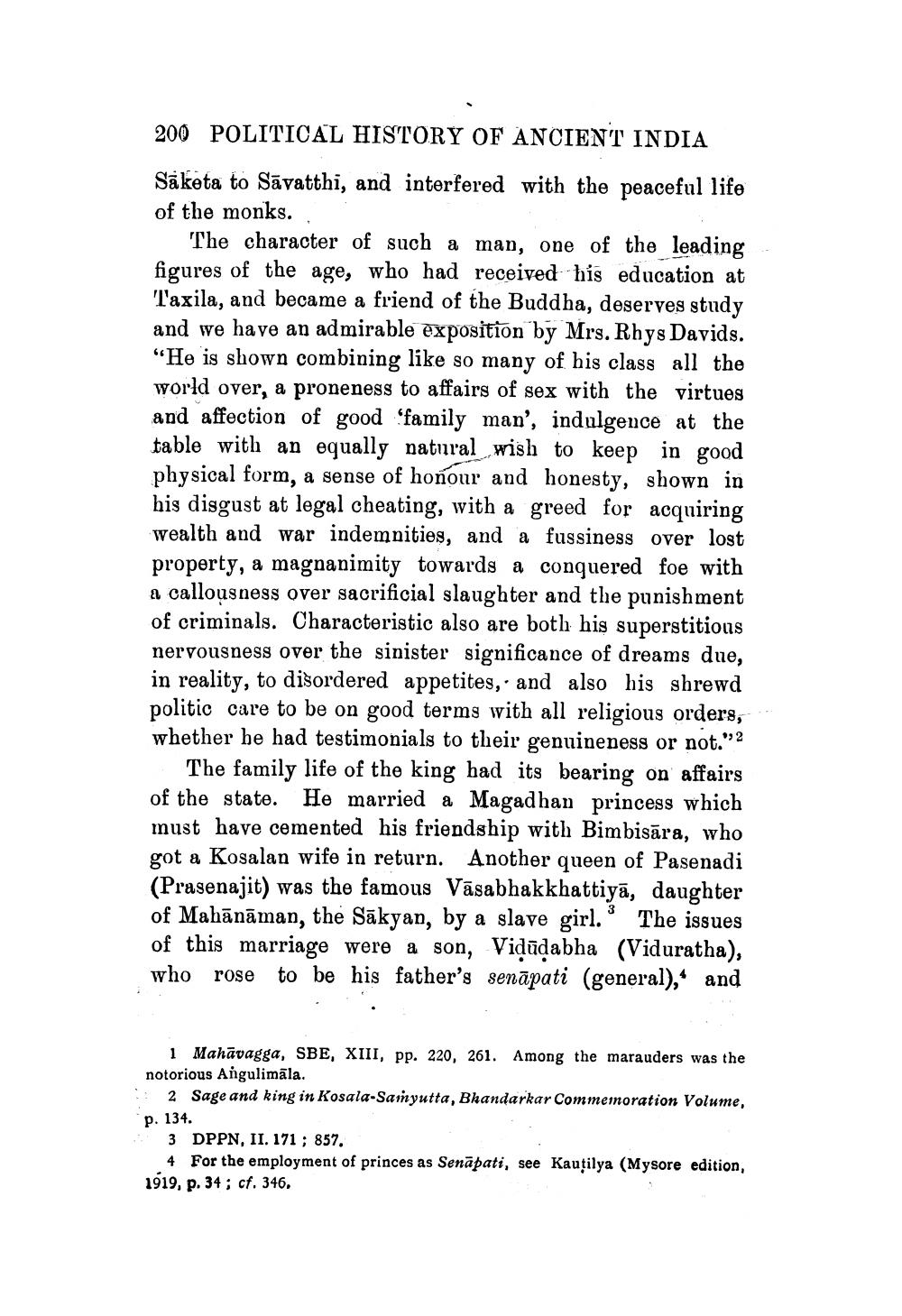________________
200 POLITICAL HISTORY OF ANCIENT INDIA Sāketa to Sāvatthi, and interfered with the peaceful life of the monks.
The character of such a man, one of the leading figures of the age, who had received his education at Taxila, and became a friend of the Buddha, deserves study and we have an admirable exposition by Mrs. Rhys Davids. "He is shown combining like so many of his class all the world over, a proneness to affairs of sex with the virtues and affection of good 'family man', indulgence at the table with an equally natural wish to keep in good physical form, a sense of honour and honesty, shown in his disgust at legal cheating, with a greed for acquiring wealth and war indemnities, and a fussiness over lost property, a magnanimity towards a conquered foe with a callousness over sacrificial slaughter and the punishment of criminals. Characteristic also are both his superstitious nervousness over the sinister significance of dreams due, in reality, to disordered appetites, and also his shrewd politic care to be on good terms with all religious orders, whether he had testimonials to their genuineness or not."2
The family life of the king had its bearing on affairs of the state. He married a Magadhan princess which must have cemented his friendship with Bimbisāra, who got a Kosalan wife in return. Another queen of Pasenadi (Prasenajit) was the famous Vāsabhakkhattiyā, daughter of Mahānāman, the Sākyan, by a slave girl. The issues of this marriage were å son, Viļūdabha (Viduratha), who rose to be his father's senāpati (general), and
1 Mahāvagga, SBE, XIII, pp. 220, 261. Among the marauders was the notorious Angulimāla. 1:2 Sage and king in Kosala-Samyutta, Bhandarkar Commemoration Volume, p. 134.
3 DPPN, II. 171 ; 857.
4 For the employment of princes as Senāpati, see Kautilya (Mysore edition, 1919, p. 34 ; cf. 346.




